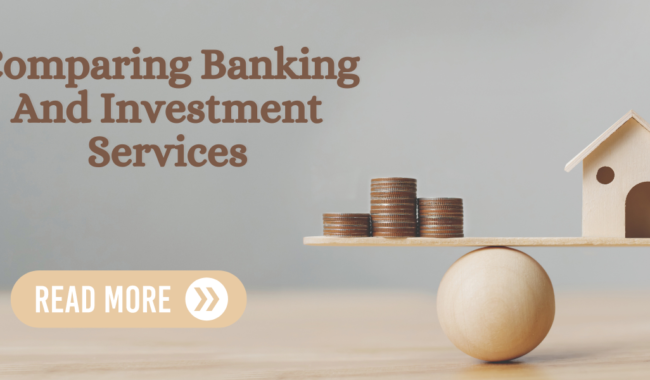In today’s fast-paced world, where financial aspirations run high, retail loans have become a popular choice for individuals and businesses alike. Whether you are planning to start a new venture, expand an existing one, or fulfill personal financial goals, retail loans can provide the necessary funds to turn your dreams into reality.
In this comprehensive guide, we will delve into the various types of retail loans, their benefits, and the eligibility criteria associated with them. By the end of this article, you will have a deeper understanding of retail loans, empowering you to make informed financial decisions.
A comprehensive guide to Retail Loans – Types, Advantages, and Eligibility Criteria
Now, let’s thoroughly analyze each of them and explore in-depth.
Introduction to Retail Loans
Retail loans, also known as consumer loans, are financial products designed to meet the borrowing needs of individuals and small businesses. These loans are typically used for purposes such as purchasing a home, buying a car, funding higher education, or managing personal expenses. Retail loans can be obtained from banks, credit unions, online lenders, and other financial institutions. They offer flexible repayment terms, competitive interest rates, and quick access to funds, making them an attractive choice for borrowers.
Types of Retail Loans
1. Home Loans
One of the most common types of retail loans is the home loan, which enables individuals to purchase a house or property. Home loans come in various forms, including fixed-rate mortgages, adjustable-rate mortgages, and government-insured loans such as FHA loans. These loans often require a down payment and are repaid over an extended period, usually ranging from 15 to 30 years.
2. Auto Loans
Auto loans are specifically designed to finance the purchase of a vehicle. Whether you’re looking to buy a car, motorcycle, or any other mode of transport, auto loans provide the necessary funds upfront, allowing you to repay the loan amount over a predetermined period. These loans may have fixed or variable interest rates, depending on the lender and your creditworthiness.
3. Personal Loans
Personal loans offer a versatile borrowing option for a wide range of purposes. Whether you need to consolidate high-interest debts, fund a wedding, or cover unexpected medical expenses, personal loans can provide the necessary financial assistance. These loans are typically unsecured, meaning they don’t require collateral, and the repayment terms vary depending on the lender and the borrower’s creditworthiness.
4. Education Loans
Education loans, also known as student loans, are specifically designed to help individuals finance their higher education. These loans cover tuition fees, books, accommodation, and other related expenses. Education loans usually have favorable terms, including lower interest rates and deferred repayment options until the borrower completes their education. Both private and government-sponsored education loans are available to students.
5. Business Loans
For aspiring entrepreneurs and small business owners, retail loans in the form of business loans play a vital role in starting or expanding their ventures. These loans provide capital for business-related expenses such as equipment purchase, inventory management, marketing campaigns, and working capital. Business loans can be secured or unsecured, depending on the lender’s requirements and the borrower’s creditworthiness.
Benefits of Retail Loans
1. Access to Funds
Retail loans offer borrowers quick access to funds, enabling them to fulfill their financial goals without delay. Whether it’s purchasing a home, buying a car, or funding a business, these loans provide the necessary liquidity to make significant investments or cover immediate expenses.
2. Flexibility in Repayment
Retail loans come with flexible repayment terms, allowing borrowers to choose a repayment schedule that aligns with their financial capabilities. Lenders offer various options, including fixed monthly installments, flexible EMIs (Equated Monthly Installments), and customized repayment plans, ensuring borrowers can manage their loan repayments effectively and comfortably.
3. Competitive Interest Rates
Retail loans often come with competitive interest rates, making them an affordable borrowing option for individuals and businesses. Lenders determine the interest rates based on factors such as creditworthiness, loan amount, and repayment tenure. By comparing offers from different lenders, borrowers can secure loans at the most favorable interest rates, reducing the overall cost of borrowing.
4. Consolidation of Debts
For individuals burdened with multiple high-interest debts, retail loans offer a potential solution through debt consolidation. By taking out a personal loan or using other retail loan options, borrowers can pay off their existing debts and consolidate them into a single, more manageable loan. This not only simplifies the repayment process but also allows for potential savings on interest payments.
5. Credit Building Opportunity
Successfully managing and repaying a retail loan can contribute to building a positive credit history. Timely repayments and responsible loan management reflect well on borrowers’ credit reports, improving their credit scores. A strong credit profile opens doors to better loan terms and increased borrowing capacity in the future.
Eligibility Criteria for Retail Loans
While the specific eligibility criteria for retail loans may vary depending on the lender and the type of loan, there are certain common factors that lenders consider:
- Credit Score and History: Lenders assess borrowers’ creditworthiness by reviewing their credit scores and credit history. A higher credit score indicates a lower credit risk and increases the chances of loan approval.
- Income and Employment Stability: Borrowers’ income levels and stability of employment play a significant role in loan eligibility. Lenders want assurance that borrowers have a steady income source to meet their loan obligations.
- Debt-to-Income Ratio: Lenders analyze borrowers’ debt-to-income ratio, which compares their monthly debt obligations to their monthly income. A lower debt-to-income ratio indicates a better ability to manage loan repayments.
- Age and Citizenship: Applicants must meet the minimum age requirement set by the lender and provide proof of citizenship or residency.
- Documentation: Borrowers need to submit relevant documents such as identification proofs, income statements, bank statements, and property-related documents, depending on the type of loan.
Conclusion
In conclusion, understanding the various types of retail loans, their benefits, and the eligibility criteria associated with them is crucial for making informed financial decisions. Whether you’re looking to purchase a home, buy a car, fund your education, or start a business, retail loans offer a wide range of options to suit your needs. By carefully evaluating your financial situation and comparing loan offers from different lenders, you can secure the most favorable terms and conditions. Remember, responsible borrowing and timely repayments are key to maintaining a healthy financial profile and maximizing the benefits of retail loans.
Keep reading further Finance!
Please keep reading and providing your support Banknomics!





